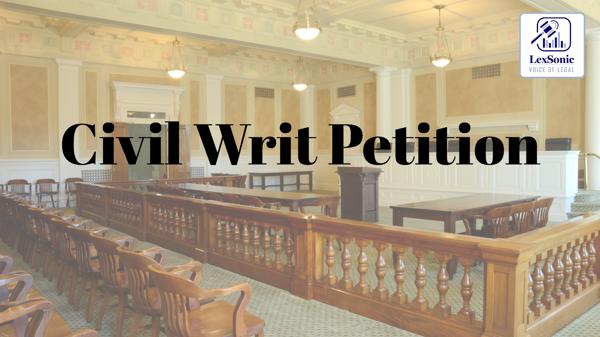Goa's Canonical Marriage Annulments: High Court Rules Ecclesiastical Decrees Lack Civil Effect After Key Law Struck Down.
09 May 2025
Civil Writ Petition >> Civil & Consumer Law
In a significant ruling of Melinda Fantin Botelho v/s The State of Goa, Through the Chief Secretary, Goa & Others, for individuals seeking to officially recognize the annulment of canonical marriages, the High Court of Bombay at Goa has determined that orders from Ecclesiastical Courts declaring a marriage null and void no longer hold civil consequences. This decision stems from the striking down of Article 19 of Decree Law No. 35461 (the Law of Marriage), a crucial provision that previously facilitated the civil enforcement of such religious decrees in Goa.
The judgment, delivered on July 4, 2025, involved a petition filed under Article 226 of the Constitution of India. The petitioner sought a writ of mandamus directing the Civil Registrar of Tiswadi to cancel the entry of her canonical marriage, which was celebrated in 2017 and subsequently declared null and void by the Patriarchal Tribunal of the Archdiocese of Goa in 2020, a decision later ratified by the Metropolitan Tribunal of the Archdiocese of Bombay in 2024.

The Core Dispute: Civil Effect of Annulment
The petitioner argued that her canonical marriage was governed by Decree Law No. 35461, applicable in Goa. Following the annulment by the Ecclesiastical Tribunal, she sought to have her civil marriage record updated. However, the Civil Registrar refused, citing a pending Supreme Court challenge to the High Court's earlier decision in Elmas Fernandes v. State of Goa & Ors., which had declared Article 19 of the Decree Law unconstitutional.
The petitioner contended that the striking down of Article 19 merely removed the procedure for High Court ratification of Ecclesiastical orders, but did not invalidate the civil consequences of the annulment itself. She argued that the Decree Law, even without Article 4 (struck down earlier) and Article 19, continued to be valid, and thus, the Civil Registrar was bound to give effect to the Ecclesiastical Court's decision. Her counsel highlighted the human rights aspect, noting that the refusal to cancel the entry prevented her from remarrying and starting a family, violating Articles 14 and 21 of the Constitution.
Conflicting Interpretations of Legal Fallout:
Conversely, Senior Advocates appointed as Amicus Curiae and the Additional Government Advocate for the Civil Registrar presented a different interpretation. They argued that Article 19 was the sole mechanism that granted civil effect to the orders of Ecclesiastical Courts. With its complete removal from the statute book, such orders inherently lose their civil enforceability. Without the High Court's "imprimatur" (approval and direction to the Civil Registrar), the annulment decreed by religious tribunals could not be recognized by the civil registration system.
They traced the history of the Decree Law, noting that Article 4, which barred civil courts from granting divorce for canonical marriages, was struck down in 1973 (Espiciosa Nunes v. Francisco Nicolau Fernandes), allowing civil divorces for canonical marriages. However, Article 19 governed the recognition of annulments by Ecclesiastical Courts.
The Court's Decisive Finding:
The High Court meticulously reviewed the relevant provisions of Decree Law No. 35461 and its own precedent in Elmas Fernandes. It concluded that the Elmas Fernandes judgment indeed struck down the entirety of Article 19 as unconstitutional, primarily because it barred the High Court's power of judicial review under Articles 226 and 227 of the Constitution.
The court explicitly stated that the scheme of Chapter II, which included Article 19, was designed to integrate Ecclesiastical Court orders into the civil framework through the High Court's enforcement. "Once Article 19 has been entirely struck down," the judgment stated, "the orders of such Tribunals now do not receive the imprimatur of the High Court and therefore would not have civil consequences."
The High Court acknowledged that an appeal against the Elmas Fernandes judgment is pending before the Supreme Court. However, as the law stands today, the striking down of Article 19 remains in effect.
Verdict:
For these reasons, the High Court dismissed the petition, ruling that the Ecclesiastical Tribunal's annulment order, confirmed by the Decree of Ratification, has no civil effects. Consequently, the Civil Registrar's refusal to endorse the cancellation of the marriage entry was deemed correct.
This ruling clarifies the legal landscape for Catholics in Goa regarding canonical marriage annulments, affirming that without a legislative or higher judicial intervention to restore or re-establish a mechanism for civil recognition, these religious decrees will not automatically alter civil marriage records.
